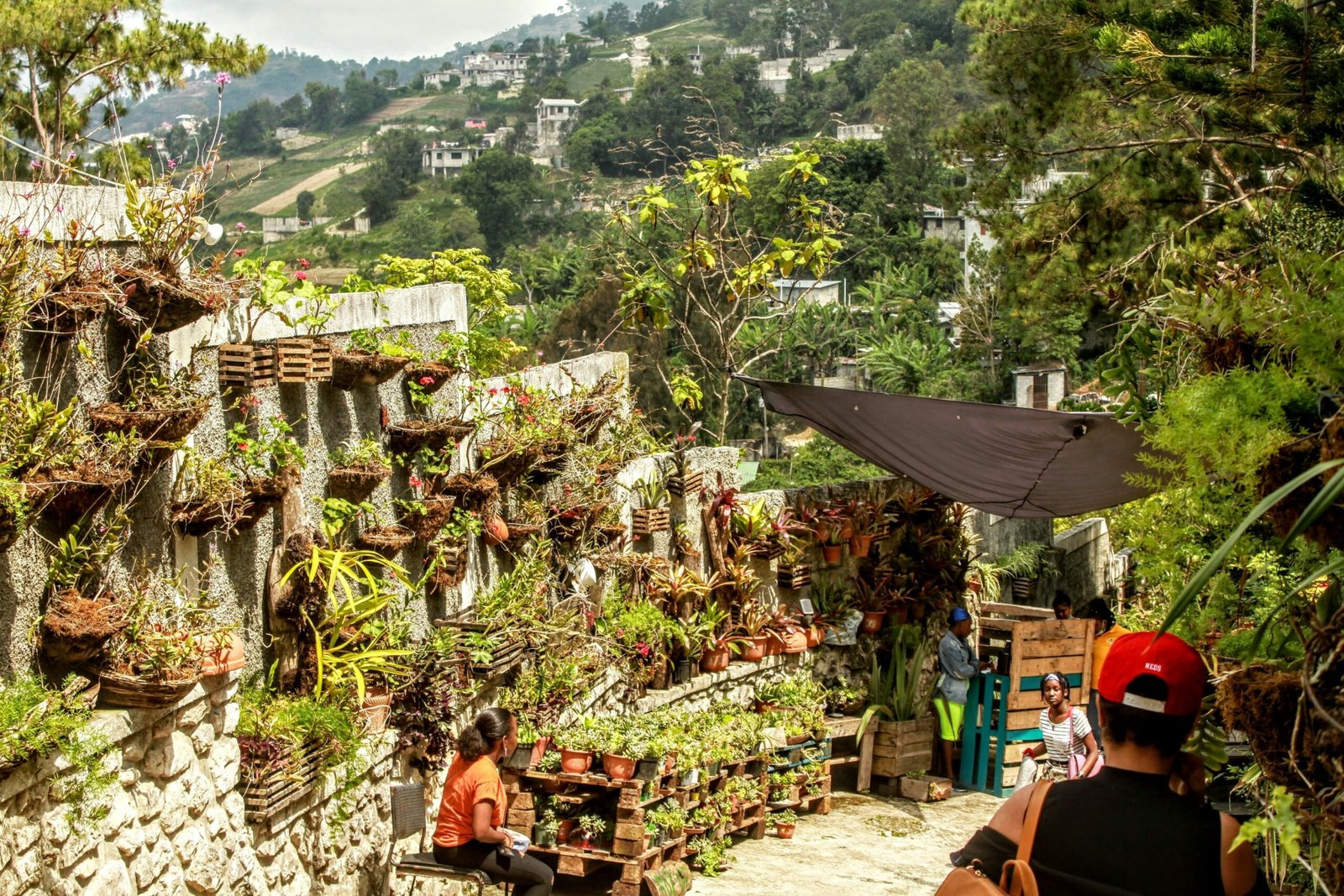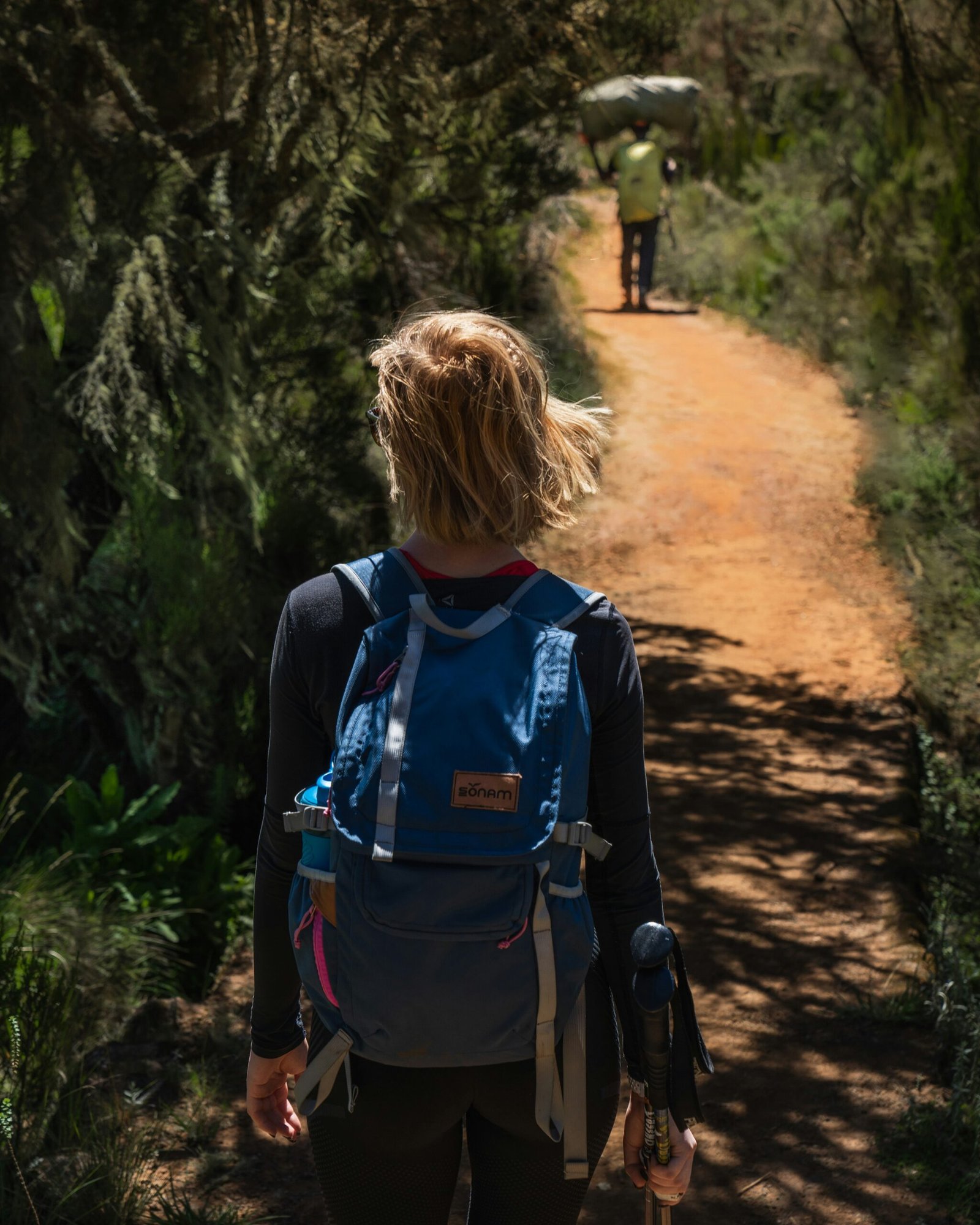Introduction to Rural Tourism
Rural tourism has emerged as a significant and appealing segment of the broader tourism industry, primarily capturing the interest of travelers looking to escape the hustle and bustle of urban environments. This concept revolves around the idea of experiencing nature, culture, and simplicity in less populated areas, offering a refreshing alternative to traditional tourist hotspots. Unlike urban tourism, which often focuses on sightseeing and commercial entertainment, rural tourism emphasizes immersion in the local community and the natural landscape, fostering a deeper connection to the environment and its inhabitants.
The increasing popularity of rural tourism can be attributed to various factors. For one, city dwellers are increasingly seeking solace from their busy lives, craving tranquil settings that allow them to unwind and recharge. The unspoiled beauty of the countryside, characterized by picturesque landscapes, farms, and small villages, serves as a perfect backdrop for relaxation and rejuvenation. Furthermore, the desire for authentic experiences plays a crucial role in attracting tourists to rural destinations. Visitors are drawn to the opportunity to engage with local culture, traditions, and gastronomy, away from the homogenized offerings often found in urban areas.
Moreover, as environmental consciousness rises, many individuals are becoming more appreciative of sustainable travel options. Rural tourism often provides eco-friendly experiences, allowing travelers to enjoy the outdoors while supporting local economies. This leads to greater awareness of biodiversity and conservation efforts, appealing to those who wish to have a positive impact while traveling. As such, rural tourism encapsulates a movement towards simplicity and sustainability, giving individuals an enriching experience that contrasts sharply with the frenetic pace of city life.
Benefits of Rural Tourism for Visitors
Rural tourism is increasingly recognized for its numerous benefits, providing visitors with a unique opportunity to disconnect from the complexities of urban life and immerse themselves in serene natural environments. One of the primary advantages of engaging in rural tourism is the significant improvement in mental health it offers. The tranquil ambiance of countryside settings can effectively reduce stress and anxiety levels, allowing individuals to find peace and relaxation away from the hustle and bustle of everyday life.
In addition to mental well-being, rural tourism presents ample opportunities for physical activities. The vast landscapes of rural areas encourage visitors to partake in hiking, biking, and other outdoor pursuits, contributing to a healthier lifestyle. Engaging with nature not only promotes physical fitness but also enhances overall happiness, leading to a rejuvenating experience that urban environments often lack.
Moreover, partaking in rural tourism exposes visitors to new cultures and local traditions. Each rural destination has its own unique heritage and customs, providing an enriching experience that fosters cultural appreciation and understanding. Visitors can participate in local festivals, culinary experiences, and artisan workshops, gaining insights into the authentic way of life in these regions. This cultural immersion enhances one’s travel experience and broadens the knowledge of diverse lifestyles beyond their own.
The simplicity and charm of rural settings also promote a deeper reconnection with nature. Visitors often find themselves more aware of their surroundings, leading to an appreciation for the beauty and tranquility that these environments embody. Such experiences can foster a sense of environmental stewardship, encouraging visitors to value and protect natural resources more actively.
Overall, rural tourism not only provides an escape from daily routines but also contributes to improved mental health, physical well-being, and cultural enrichment, making it an appealing choice for travelers seeking authenticity and simplicity in their adventures.
Sustainable Tourism: A Conscious Choice
Sustainable tourism has gained considerable traction in recent years, particularly within the context of rural tourism. This approach emphasizes the importance of eco-friendly travel and advocates for practices that both preserve natural resources and promote the well-being of local communities. Rural tourism offers a unique opportunity for travelers to engage with nature while supporting sustainable initiatives that benefit local economies and ecosystems.
One of the primary facets of sustainable rural tourism is its commitment to environmental conservation. By encouraging visitors to explore rural landscapes and natural attractions, this form of tourism fosters an appreciation for local biodiversity and ecosystems. Through responsible tourism practices, such as minimizing waste and reducing carbon footprints, visitors can actively contribute to the preservation of these fragile environments. Many rural tourism initiatives implement guidelines that prioritize eco-friendly activities, such as hiking, cycling, and wildlife observation, allowing travelers to immerse themselves in nature without causing significant disruption to local habitats.
Additionally, rural tourism is instrumental in bolstering local economies. By choosing to visit rural areas, travelers support small businesses, farmers, and local artisans. This economic boost helps sustain community livelihoods and often leads to the development of more sustainable practices. As local entrepreneurs invest in responsible methods of tourism management, such as organic farming and traditional craftsmanship, they create a symbiotic relationship between visitors and the community.
Moreover, fostering community well-being is central to sustainable rural tourism. When travel practices encourage respect for local cultures and traditions, it promotes a sense of belonging and pride within communities. Engaging with local residents provides an authentic experience that benefits both tourists and hosts. Witnessing traditional customs and participating in community-led initiatives also enhances the overall travel experience, creating lasting memories while ensuring that the economic gains are equitably distributed among community members.
Activities to Enjoy in Rural Areas
Rural tourism offers an abundance of activities that allow visitors to reconnect with nature and experience the simplicity of life outside urban environments. Among these activities, hiking stands out as a popular choice, enabling individuals to explore scenic trails while enjoying the tranquility and fresh air of the countryside. The diverse terrain found in rural areas caters to all skill levels, from leisurely walks through meadows to challenging hikes up mountainous regions. This connection with nature not only promotes physical fitness but also enhances mental well-being.
Fishing is another prevalent activity in rural settings, attracting both amateurs and experienced anglers. Many rural regions are home to pristine lakes, rivers, and streams that offer plentiful opportunities for fishing. Visitors can engage in peaceful moments by the water, casting their lines while enjoying the serene landscapes that surround them. In addition to the joy of fishing, these experiences often foster a sense of community, as individuals bond over shared tips and stories about their catches.
For those seeking adventure, hunting can offer a thrilling experience that connects participants deeply to the natural world. Many rural areas provide guided hunting tours that educate participants on wildlife management and the ecological significance of various species. This activity not only encourages a greater appreciation for nature but also underscores the importance of conservation efforts.
Orienteering, involving navigation and map-reading skills, is yet another engaging activity that rural tourism promotes. This sport challenges individuals to utilize their problem-solving abilities while fostering teamwork and cooperation in a natural environment. As participants navigate through lush forests and open fields, they gain a deeper understanding of the surrounding ecosystem.
In conclusion, rural tourism encourages a wide range of activities that foster a strong connection to nature while promoting healthy lifestyles. Whether one prefers hiking, fishing, hunting, or orienteering, these experiences in rural areas provide a perfect balance of adventure and tranquility.
The Impact on Local Communities
The rise of rural tourism has significantly influenced local communities, providing a myriad of benefits that extend beyond mere economic factors. One of the primary outcomes of this trend is the stimulation of local economies. As visitors flock to rural areas in search of authentic experiences, there is a corresponding increase in demand for local goods and services. This surge not only supports existing businesses but also encourages the creation of new enterprises that cater to the needs and desires of tourists. Consequently, rural communities have begun to see increased revenue through accommodation, dining, and the sale of regional crafts and products.
In addition to economic stimulation, rural tourism plays a vital role in job creation. As tourism-related businesses expand, they require a diverse range of services, leading to numerous employment opportunities for residents. From hospitality roles in quaint bed and breakfasts to positions in local tour organizations and farms, the job creation potential is significant. This influx of employment helps to alleviate rural poverty and can lead to a more sustainable economic future for these communities.
Moreover, rural tourism fosters cultural exchange between visitors and locals. This interaction can lead to the preservation and promotion of unique cultural practices, traditions, and craftsmanship that might otherwise diminish. Local artisans and producers can gain visibility and market access as tourists actively seek out authentic, handmade goods and local specialties. This not only enhances the community’s cultural landscape but also strengthens social bonds among residents, as they engage together to showcase their heritage and hospitality. Enhancing cultural exchange through rural tourism can empower communities, encouraging pride in local traditions while adapting to the evolving global landscape.
Challenges Facing Rural Tourism
Rural tourism has been gaining popularity as more individuals seek a connection with nature and a break from urban life. However, this growth is not without its challenges, which must be addressed to ensure a sustainable future for this sector. One significant issue is overcrowding in certain rural destinations, which can lead to a degradation of the natural environment and a diminished experience for visitors. Increased foot traffic often results in wear and tear on trails, landscapes, and infrastructures, such as accommodations and public facilities.
Another pressing concern is environmental degradation. With more people visiting rural areas, the impact on local ecosystems can be profound. Waste management becomes a critical issue, as many rural destinations lack the infrastructure to handle increased waste produced by visitors. Additionally, overexploitation of natural resources, such as water for accommodation services and land for amenities tailored to tourists, can disrupt local ecosystems and agricultural practices. Sustainable tourism practices must be implemented to mitigate these detrimental effects and protect the natural landscapes that draw tourists in the first place.
The seasonal nature of rural tourism presents yet another challenge. Many rural destinations experience peaks and troughs in visitor numbers, often dependent on specific seasons or events. This fluctuation can hinder the economic stability of local businesses reliant on consistent tourist patronage. Furthermore, seasonal employment may lead to workforce challenges, such as retaining skilled workers during off-peak periods. It is essential to develop strategies that encourage year-round tourism, leveraging local culture and attractions beyond the traditional high seasons.
Addressing these challenges requires a coordinated effort among local stakeholders, policymakers, and tourism operators. Emphasizing sustainable practices, fostering community involvement, and balancing the needs of tourism with environmental protection are crucial steps to ensure the longevity and health of rural tourism.
Best Destinations for Rural Tourism
Rural tourism has gained popularity as travelers seek to connect with nature and experience the tranquility that countryside destinations offer. Here are some of the best destinations for rural tourism that present breathtaking landscapes and rich cultural experiences.
One standout location is the Tuscany region in Italy. Known for its rolling hills, vineyards, and charming villages, Tuscany provides an idyllic setting for those looking to escape urban life. Visitors can partake in wine tours, explore ancient castles, and savor traditional Italian cuisine, all while marveling at the picturesque countryside.
Another remarkable destination is Bhutan, a small kingdom nestled in the eastern Himalayas. Its commitment to sustainable tourism has made it a perfect example of rural tourism that promotes culture and nature preservation. Here, travelers can hike in pristine landscapes, experience traditional festivals, and visit ancient monasteries, all while being surrounded by breathtaking mountain views.
The Lake District in England is also a prime spot for those looking to immerse themselves in the beauty of nature. Known for its stunning lakes, rugged mountains, and charming villages, the Lake District offers a wealth of outdoor activities such as hiking, boating, and wildlife watching. The area’s rich literary history also adds to its appeal, attracting literature enthusiasts eager to explore the landscapes that inspired renowned poets and authors.
In Asia, the rice terraces of Banaue in the Philippines stand out as a unique rural destination. This UNESCO World Heritage Site showcases centuries-old engineering, where rice paddies are meticulously carved into the mountainsides. Visitors can engage with local farmers, learning about their methods while enjoying breathtaking views of the terraces.
These destinations exemplify what rural tourism has to offer: a chance to embrace simplicity, experience rich cultures, and reconnect with nature, all while contributing to the local economy. From Italy’s picturesque landscapes to the serene mountains of Bhutan, there are myriad options for travelers seeking a return to the simpler joys of life.
Tips for Rural Travelers
Rural tourism offers a unique opportunity to immerse oneself in the tranquility of nature while experiencing the authentic cultural practices of local communities. To make the most of your rural trip, it is essential to plan effectively. Start by researching your destination; understanding the local landscape, climate, and available amenities can significantly enhance your travel experience. Ensure you familiarize yourself with the region’s culture and customs to appreciate and respect the local way of life.
When preparing for your journey, packing appropriately is crucial. Opt for versatile clothing that suits a range of activities, from hiking to casual dining. Sturdy footwear is necessary for exploring the great outdoors, while a lightweight waterproof jacket can provide necessary protection against unpredictable weather. Additionally, consider bringing reusable items such as water bottles, bags, and utensils to minimize environmental impact. These small changes can contribute to sustainable travel practices, which are particularly important in rural areas often vulnerable to the effects of tourism.
One of the key aspects of engaging in rural tourism is the emphasis on respecting local customs and communities. This includes learning basic greetings in the local language, adhering to social norms, and supporting local artisans and businesses. For instance, when attending local events or festivals, be mindful of participation etiquette to foster goodwill and appreciation. Moreover, practicing responsible tourist behavior, such as staying on designated paths, can help preserve the natural environment.
Lastly, consider your transportation options. Using public transportation or bicycles can not only reduce your carbon footprint but also allow for a more intimate connection with the area. By following these tips, you can ensure a rewarding experience that benefits both the traveler and the community, allowing you to truly embrace the simplicity of nature during your rural adventure.
Conclusion: Embracing the Rural Escape
As we reflect on the discussions regarding rural tourism, it becomes evident that this burgeoning travel trend offers a unique opportunity to reconnect with the natural world. The appeal of rural destinations is highlighted by their capacity to provide a serene refuge from the hectic pace of urban life. Visitors are increasingly seeking transformative experiences that offer not only tranquility but also the chance to appreciate the vast beauty of nature. This desire for simplicity ties directly into the essence of rural tourism, characterized by breathtaking landscapes, genuine interactions with local communities, and traditional practices that evoke a sense of nostalgia.
The benefits of embracing rural tourism extend far beyond personal rejuvenation. Destinations that promote rural travel are often crucial to supporting local economies, preserving cultural heritage, and fostering sustainable practices. By choosing rural escapes, travelers contribute to the livelihoods of those residing in less populated areas, thereby encouraging the preservation of natural resources and local identities. Furthermore, the emphasis on outdoor activities such as hiking, cycling, and farming tours allows individuals to engage with their environment actively while also reaping the mental and physical health benefits associated with spending time in nature.
In today’s fast-paced world, rural tourism stands out as a viable option, offering transformative experiences that cater to a growing desire for peace and simplicity. As city dwellers increasingly recognize the need to escape to the countryside for respite, it is important to consider the rich offerings of rural regions. The harmony found within nature and the welcoming communities provide a unique perspective that urban settings often cannot match. Embracing the rural escape not only revitalizes the spirit but also fosters a deeper appreciation for the diverse landscapes and cultures that our world has to offer.











